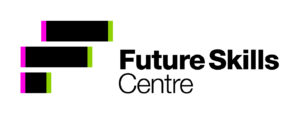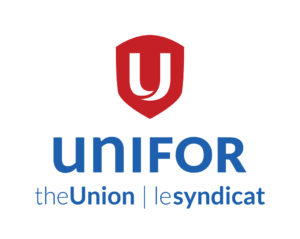
Emerging Stronger: Addressing the Skills Under-Utilization Challenge for the Future of Work in Canada
Series | Brave New Work Key IssuesA thriving knowledge economy inherently relies on a highly skilled and adaptable workforce. And, as the COVID-19 pandemic has revealed, knowledge-intensive sectors are far more resilient in times of disruption than most other sectors.
So what does it take to build the workforce that will help Canada transition to a knowledge economy?
On paper, we have already accomplished this feat. According to the Organisation for Economic Co-operation and Development (OECD), Canada has one of the most highly educated and highly skilled workforces in the world. Our strong post-secondary education system, combined with robust labour market development programs, should lead to an abundance of the kinds of workers knowledge-based firms need. And yet, we continue to lag behind our international peers. Industry points to a lack of the right talent as a critical inhibitor for their growth.
In Canada, we excel at creating and launching firms in sectors such as information and communication technology (ICT), also known as “high-tech”. We are consistently ranked as one of the five best countries for creating knowledge-based enterprises. But we struggle to turn start-ups into global leaders. For example, seven of the 10 largest market capitalized companies on US stock exchanges are in the knowledge sector. In Canada, we have one: Shopify.
The enduring and frustrating irony to this challenge is that while Canadian ICT firms are struggling to hire business talent, significant numbers of workers in the Canadian labour market have the foundational skills to succeed in these roles.
This paper sets out to explore this gap. Undoubtedly, Canada has put significant emphasis on developing policies, programs and services across the labour market to address challenges inherent in the so-called “skills gap”.
This paper untangles actions from outcomes, tests popular assumptions, and begins to answer critical questions:
- How do we ensure that opportunities are maximized for Canadians in the transformation to a knowledge-intensive economy?
- What are the appropriate support mechanisms for mid- to late-career workers who are most in danger of being displaced during this transformation?
- How should our skilling and education systems evolve to prepare those entering the workforce in an environment where skills needs are constantly evolving?
Most importantly, we ask the fundamental question: Are we sure the problem is mismatched skills?
To answer this, we go back to first principles and ask: What does it take to land a job in tech, especially if you have the skills but are coming out of a totally different sector? Asking this question leads us on an interesting journey that enables us to identify and address challenges that go far beyond a skills question—challenges we may have missed because we are so focused on skills.
To explore these and other questions the authors, AJ and Arvind, created Palette Inc., a national not-for-profit talent platform that strives to meet the needs of Canada’s most innovative companies by rapidly upskilling diverse and non-traditional workers. Market research, combined with the lessons learned in our first year of operation, have generated the insights we share in this paper. Palette gave us a platform for testing real-world assumptions. We were able to gain new perspectives, in part by seeing the skills debate through the eyes of companies and workers.
Our overall findings indicate that the talent challenge faced by ICT firms is less a problem of an underlying skills gap in the workforce and more a problem of skill underutilization. We argue that ICT firms’ inherent biases are stalling the transition of large numbers of well-qualified workers into these firms. Such biases arise because the hiring processes ICT firms use are not capable of identifying skills picked up in more traditional sectors. This contributes to a chronic inefficiency and underutilization of talent within the labour market and bolsters the refrain that there is a skills gap and/or talent shortage.
The challenge for policy-makers in thinking about how we support the burgeoning knowledge economy is to identify where we already have the requisite skillset and how firms can tap those workers. How do we create the systems and structures necessary to rapidly redeploy talent across sectors as supply and demand for talent shift?
Addressing this challenge is critical if Canada is to transition to a 21st-century economy that is poised for sustained growth—and that will ensure all Canadians have the opportunity to enhance their quality of life, irrespective of disruptions caused by automation, recession or a global pandemic.
For further information on the Brave New Work initiative, please contact Andrée Loucks, and don’t forget to sign up for the Brave New Work newsletter!
The views expressed in the research papers, articles and reports reflect those of our authors and do not necessarily reflect those of our sponsors and partners.
Thank you to our lead sponsor

Thank you to our partners
Sign up for the Brave New Work Newsletter
 |
 |
 |
 |
 |
 |
 |
 |
 |
 |








